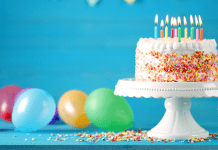 Your baby’s first tooth is an exciting time for both you and baby, but it also signals the start of some major developmental milestones. While your child experiences many passing changes in their first decade of life, their smile is one that will last a lifetime! Caring for your child’s teeth early and knowing what to expect can save both of you a lot of headache in the future.
Your baby’s first tooth is an exciting time for both you and baby, but it also signals the start of some major developmental milestones. While your child experiences many passing changes in their first decade of life, their smile is one that will last a lifetime! Caring for your child’s teeth early and knowing what to expect can save both of you a lot of headache in the future.
Baby teeth
Your baby’s first set of teeth are already present in their jaw at birth, just below the gumline. The first baby teeth to come in are usually the two in the bottom middle, and they begin to erupt around six months of age. About four new baby teeth will erupt every six months until your child is between two and a half and three, when all 20 teeth have developed. Baby teeth begin erupting in the middle, top and bottom, and usually appear in sequence around the arc of the mouth, ending with the top and bottom molars.
Baby teeth are crucial to helping your child learn to speak, smile, and chew, and they hold space in the jaw for the adult teeth that are developing under the gums. Even though they will eventually fall out, baby teeth still require the same attention and care as permanent adult teeth. Baby teeth that fall out or must be removed too early—either from an accident or as the result of tooth decay—can make it difficult for permanent teeth to develop or erupt properly, leading to crooked or crowded teeth or weak tooth roots.
You can begin caring for your child’s oral health as soon as the first tooth erupts. Use a small, soft toothbrush and a tiny smear of fluoride toothpaste—about the size of a grain of rice—to gently brush their teeth and gums. You can also schedule your child’s first dental appointment around this time, if only as an opportunity to introduce them to the dentist.
Losing teeth and teeth in transition
Your child will keep all of these baby teeth until he or she is about six or seven, although it can be slightly earlier or later for some children. Baby teeth typically begin to fall out in the same order in which they erupted, which means the front teeth are usually the first ones lost.
Baby teeth generally do not start to wiggle or loosen until a permanent tooth is behind it and ready to erupt. However, even if the baby tooth is ready to fall out, it may still be some time before the permanent tooth appears.
For the most part, baby teeth simply fall out on their own; there is not much you or your child needs to do to. While your child can wiggle a loose tooth, try not to expedite the process. Pulling a tooth out too early or too forcefully can damage the root, lead to an infection, or cause problems in how and where the permanent tooth comes in.
Your child will continue to lose teeth over several years, with the last teeth—the second molars—falling out around age 12. While there may be some time in between the last tooth falling out and the last permanent tooth coming in, most kids will have all 32 of their permanent teeth—12 more than their original set of baby teeth—by age 13 or so.
Permanent Teeth
Permanent teeth are just that—permanent! Teach your child early that these adult teeth are the only ones they’re going to get, and they need to take good care of them. Just like adults, your child should brush for two minutes, twice a day, with fluoride toothpaste; floss once a day; and supplement with a fluoride rinse if you want. You can supervise brushing and flossing until you are confident they have developed healthy habits, but also be sure to peek in on them every once in a while to make sure they’re sticking with it.
Explain to your child the importance of other healthy choices they can make to preserve their teeth, such as avoiding foods or drinks that are very sugary, crunchy, or chewy and wearing a mouthguard when they play sports.
Pediatric Dental Care at Dental Depot
Dental Depot provides the comprehensive dental care every member of your family needs at every stage of life, from baby teeth to adulthood. We encourage you to bring your child in for an initial appointment by their first birthday to introduce them to the dentist and help make them comfortable with their visits. This also gives the dentist a chance to quickly evaluate your child’s mouth for any potential problems in development and get ahead of any issues.
Routine checkups and cleanings are important for your child’s developing smile, so we make it easy and convenient to fit them into your busy schedule. Whether you need an appointment for everyone in your family at the same time or need to come see us on a Saturday, Dental Depot’s flexible scheduling options help get you in and out and on with your life. To find the Dental Depot location nearest you, or to schedule an appointment, visit us at dentaldepot.net/find-location.
Help your child take charge of their oral health today for a beautiful smile they’ll enjoy tomorrow!


















